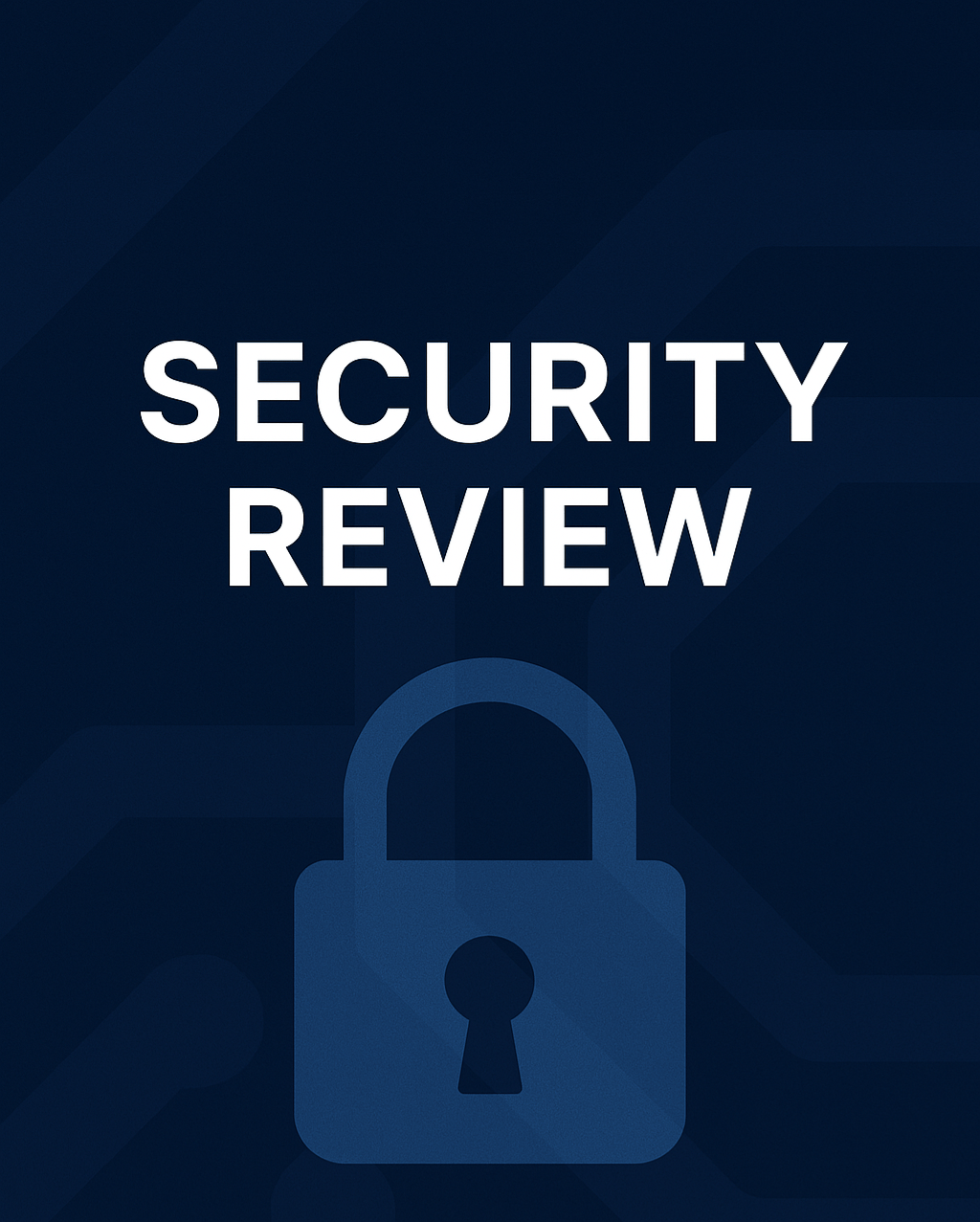Introduction to SOC 2 Compliance
SOC 2 compliance refers to a set of standards established by the American Institute of CPAs (AICPA) to guide service organizations in managing customer data based on five trust service criteria: security, availability, processing integrity, confidentiality, and privacy. Originally derived from the Trust Services Criteria, SOC 2 has evolved to become a crucial benchmark for assessing how well organizations protect sensitive information.
The SOC 2 framework ensures that an organization’s information systems are secure, available, and functioning correctly while safeguarding the sensitive data they handle. Specifically, the security principle ensures that systems are protected against unauthorized access, which could compromise the integrity, confidentiality, and privacy of client information. The availability criterion ensures that systems are operational and accessible as agreed upon with the client. Processing integrity confirms the system’s operational accuracy, while confidentiality and privacy are focused on protecting sensitive client data against unauthorized disclosure and ensuring personal information is handled correctly.
Obtaining a SOC 2 report signifies an organization’s commitment to protecting customer data. These reports, generated after a thorough audit, provide transparency into an organization’s internal controls and processes related to data security. For partners, clients, and stakeholders, a SOC 2 report serves as an assurance that the organization prioritizes data security and adheres to stringent policies and procedures.
To provide additional context, it’s helpful to briefly distinguish between SOC 1, SOC 2, and SOC 3 reports. While SOC 1 focuses on financial reporting controls, SOC 2 addresses broader concerns around data protection. SOC 3, on the other hand, is a general-use report providing similar information to SOC 2 but designed for public distribution.
In conclusion, as digital threats continue to evolve, SOC 2 compliance serves as a critical safeguard, reinforcing an organization’s commitment to securing customer data and maintaining trust with clients and stakeholders alike.
Reason 1: Building Customer Trust
SOC 2 compliance is fundamentally important in fostering and sustaining trust with customers. In today’s digitally driven marketplace, customers are increasingly vigilant about who they entrust with their sensitive information. Achieving SOC 2 certification sends a clear message to clients and partners that your organization prioritizes data security. This rigorous framework, developed by the American Institute of CPAs (AICPA), ensures your adherence to stringent security standards, significantly enhancing the reliability of your services.
By acquiring SOC 2 compliance, you assure customers that their data is safeguarded against unauthorized access and breaches. This assurance acts as a trust anchor, easing customer concerns and establishing confidence in your operations. The resultant effect is multifaceted – not only do customers feel secure, but their loyalty toward your business also strengthens. They are more inclined to maintain long-term relationships and are less likely to seek alternatives, knowing that their data is managed with the highest standards of care.
Moreover, in securing SOC 2 certification, your organization gains a competitive edge. In an era where data breaches and cyber-attacks are prevalent, demonstrating robust data protection mechanisms differentiates your business from competitors. Potential clients are increasingly opting for service providers with proven security credentials, as it mitigates their risk exposure. Thus, SOC 2 compliance not only safeguards customer data but also becomes a pivotal selling point, attracting new business opportunities.
In conclusion, SOC 2 compliance is a strategic investment that builds and reinforces customer trust. It transparently showcases your dedication to data security, leading to enhanced customer loyalty and positioning your organization as a reliable entity in the marketplace.
Reason 2: Ensuring Regulatory Compliance
Achieving SOC 2 compliance extends beyond fortifying your organizational trust; it typically dovetails with meeting multiple regulatory requirements. For instance, many laws and regulations, like the General Data Protection Regulation (GDPR) and the Health Insurance Portability and Accountability Act (HIPAA), stipulate strict controls over data privacy and security. SOC 2 certification encompasses principles such as security, availability, processing integrity, confidentiality, and privacy, thereby aligning with the requisites these laws impose.
By adhering to SOC 2 standards, organizations systematically fulfill the compliance mandates outlined by various regulatory bodies. GDPR mandates rigorous data protection measures, and the confidentiality and privacy principles of SOC 2 effectively address these requirements. Similarly, HIPAA requires the protection of healthcare information, aligning directly with the security and confidentiality tenets of SOC 2. Moreover, for organizations dealing with financial data, SOC 2 compliance intersects with regulatory frameworks like SOX (Sarbanes-Oxley Act), ensuring robust audit trails and controls over financial reporting.
Furthermore, being SOC 2 compliant positions organizations for smoother audits and inspections, not just internally but also externally. The comprehensive nature of SOC 2 audits ensures that potential vulnerabilities in data handling and security processes are identified and rectified, streamlining the overall audit process. This proactive alignment with regulatory standards drastically diminishes the risk of legal penalties, thereby enhancing both operational efficiency and legal standing.
Optimal preparedness for regulatory scrutiny not only mitigates operational disruptions but also enhances market reputation. Clients and stakeholders gain increased confidence in your organization’s commitment to data security and privacy, providing a competitive edge in the industry. Through SOC 2 compliance, organizations substantively demonstrate their readiness to navigate the intricate landscape of regulatory demands, thereby fostering a culture of accountability and security excellence.
Reason 3: Enhancing Risk Management
The strategic importance of SOC 2 compliance cannot be overstated when it comes to enhancing an organization’s risk management framework. The SOC 2 framework obligates organizations to rigorously identify, assess, and manage risks, which translates to a more robust security posture. This level of scrutiny necessitates the implementation of comprehensive security policies and procedures that are essential in mitigating potential risks effectively.
Organizations adhering to SOC 2 compliance are required to develop and maintain stringent control procedures. These are precisely designed to address diverse risk vectors ranging from data breaches to insider threats. By aligning with SOC 2, firms can bring a high degree of discipline to their information security measures, significantly reducing the probability of unauthorized access and data compromise. These security policies are not static; they must evolve in response to emerging threats and organizational changes.
Continuous monitoring and regular risk assessments are fundamental components of the SOC 2 framework. By embracing these practices, organizations can identify vulnerabilities in real-time and implement timely corrective actions. This proactive approach contrasts sharply with reactive strategies that only address risks after incidents occur. The ongoing nature of monitoring allows for the identification of risks before they can escalate into serious security issues, thereby preserving the integrity and trust in the organization’s information systems.
Moreover, SOC 2 compliance supports an organization in building a culture centered on risk awareness and management excellence. Employees are more likely to appreciate the importance of security protocols and adhere to best practices when they understand the risks involved and the measures in place to mitigate them. This cultural shift contributes to an enhanced overall security posture.
In summary, the SOC 2 framework equips organizations with the necessary tools and methodologies for effective risk management. From mandated security policies and procedures to continuous monitoring and regular assessments, SOC 2 ensures a comprehensive approach to managing and mitigating risks, crucial for maintaining trust and reliability in today’s technology-driven landscape.
Reason 4: Protecting Sensitive Data
In today’s highly digitized environment, safeguarding sensitive data has become paramount for organizations across all sectors. The rise in cyber threats and data breaches necessitates stringent measures to ensure data integrity and confidentiality. Achieving SOC 2 compliance serves as a foundational framework for implementing these measures. It mandates businesses to adopt comprehensive controls aimed at protecting sensitive information from unauthorized access and breaches.
SOC 2 compliance, a hallmark of robust data security, enforces the implementation of various protective mechanisms. One of the primary controls is encryption. Encryption ensures that data, whether at rest or in transit, remains unreadable to unauthorized users, thereby significantly mitigating the risk of data breaches. This mechanism acts as a formidable barrier, preserving the confidentiality of sensitive information such as customer data, financial records, and intellectual property.
Another critical aspect of SOC 2 is the requirement for stringent access controls. Effective access management stipulates that only authorized personnel have access to sensitive data, thereby reducing the likelihood of internal security threats. Role-based access control (RBAC) and multifactor authentication (MFA) are two methodologies often employed under SOC 2 to ensure that data access is meticulously monitored and restricted. These measures ensure that sensitive information is compartmentalized and only accessible to individuals with a legitimate need.
Data anonymization is also a pertinent measure reinforced by SOC 2. By converting personal data into anonymous data, organizations can mitigate risks associated with data breaches. Anonymized data cannot be linked back to individuals, hence providing an additional layer of security. This is particularly crucial when handling extensive datasets that include personal or identifying information.
The emphasis on protecting sensitive data is a crucial aspect of SOC 2 compliance. By implementing stringent controls such as encryption, access management, and data anonymization, businesses can establish a secure environment that instills confidence among clients and stakeholders, ultimately fostering trust and ensuring regulatory adherence.
Reason 5: Strengthening Vendor Management
In today’s interconnected business landscape, organizations routinely depend on third-party vendors for an array of services, from cloud storage solutions to customer support functions. While these partnerships enable operational efficiencies and specialized capabilities, they also introduce significant security risks. SOC 2 compliance provides a structured framework to ensure that these third-party vendors adhere to robust security standards, thereby reducing potential vulnerabilities.
SOC 2 requirements articulate comprehensive guidelines for managing vendor relationships, focusing on the protection of sensitive data and system integrity. By embedding SOC 2 principles within their vendor management policies, organizations can better evaluate and monitor the security practices of their vendors, subcontractors, and partners. This holistic approach to vendor oversight helps in identifying risks early and enforcing corrective measures, ensuring that third-party services do not become inadvertent weak links in the security chain.
Moreover, the SOC 2 audit process extends to assessing the security controls implemented by vendors. When an organization mandates that its vendors obtain SOC 2 certification, it signifies a mutual commitment to high-security standards. Such compliance audits delve into the vendors’ adherence to key Trust Service Criteria, encompassing security, availability, processing integrity, confidentiality, and privacy. Regular SOC 2 audits provide invaluable insights into vendors’ security protocols, enabling organizations to make informed decisions about their long-term partnerships.
Incorporating SOC 2 compliance into vendor management not only safeguards against breaches and data leaks but also establishes a culture of security that permeates through the entire supply chain. This proactive stance engenders trust among stakeholders, ensuring that every entity associated with the business shares a unified goal of upholding stringent security measures. Therefore, SOC 2 compliance serves as a pivotal tool in fortifying vendor management practices, ultimately leading to a more secure and resilient operational environment.
Reason 6: Gaining a Competitive Advantage
In today’s increasingly competitive business landscape, attaining SOC 2 compliance can serve as a pivotal differentiator for organizations striving to set themselves apart from their competitors. For organizations that prioritize data security and privacy, demonstrating SOC 2 compliance establishes trust and credibility. This not only reassures existing clients but also attracts prospective customers and business partners who value robust data protection practices.
Many businesses are becoming more stringent in their vendor selection process, often requiring third-party service providers to possess pertinent security certifications. Displaying SOC 2 certification can thus be a powerful marketing tool, signaling a commitment to maintaining high standards of data integrity and confidentiality. It underscores an organization’s proactive stance in safeguarding sensitive information, making it a compelling proposition for security-conscious clients.
Case studies abound where SOC 2 certification has been a determining factor in securing lucrative contracts and entering new markets. For instance, a mid-sized SaaS company achieved SOC 2 compliance and subsequently landed a key contract with a major financial services firm that mandated stringent data protection standards. Similarly, a cloud solutions provider expanded its customer base by gaining a foothold in the healthcare industry, which places a premium on compliance with rigorous security frameworks like SOC 2.
Moreover, SOC 2 compliance fosters a culture of continuous improvement within organizations. It encourages the implementation of best practices in data security, operational resilience, and regulatory conformity. This not only enhances the organization’s internal processes but also its market positioning. Companies that can demonstrate such commitment are often viewed as more reliable and trustworthy, thereby gaining a competitive edge.
In essence, achieving SOC 2 compliance is not merely about meeting regulatory requirements. It is a strategic initiative that can significantly elevate an organization’s stature in the marketplace, drawing in new clientele, forging stronger partnerships, and ensuring sustained business growth. By differentiating your organization through SOC 2 certification, you position yourself as a leader in the industry, keen to uphold the highest standards of data security.
Reason 7: Improving Operational Efficiency
Implementing SOC 2 standards can significantly enhance operational efficiency within an organization. By adhering to SOC 2 compliance requirements, companies often find themselves examining their existing processes and discovering areas for improvement. This introspection leads to streamlined operations and the identification of inefficiencies that may have previously gone unnoticed.
One of the primary benefits of SOC 2 compliance is the rigorous assessment of internal controls and procedures. This evaluation helps in recognizing gaps and redundancies, enabling organizations to refine their workflows and eliminate bottlenecks. As a result, tasks that once took excessive time and resources can be performed more swiftly and effectively.
Better incident response strategies are another crucial advantage gained through SOC 2 compliance. The standards necessitate the creation and maintenance of comprehensive incident response plans. These plans ensure that in the event of a security breach or operational disruption, the organization can respond promptly and effectively, mitigating potential damages and resuming normal operations with minimal downtime.
Furthermore, employee training and awareness programs are integral components of the SOC 2 framework. These programs educate staff about the importance of security controls and their roles in maintaining the integrity and confidentiality of data. Enhanced employee understanding and engagement result in better adherence to security policies, reducing the likelihood of human error and ensuring smoother day-to-day operations.
In essence, the pursuit of SOC 2 compliance drives organizations to adopt best practices and cultivate a proactive security posture. By aligning operations with SOC 2 standards, companies not only bolster their security framework but also achieve heightened operational efficiency, ultimately benefiting their bottom line.
Reason 8: Facilitating Business Scalability
Achieving SOC 2 compliance goes beyond meeting regulatory requirements; it establishes a robust foundation conducive to business growth and scalability. By adhering to SOC 2 standards, organizations can better prepare for future expansions, mergers, or acquisitions by embedding a culture of security and trust within their operational framework.
SOC 2 compliance ensures that robust controls are in place to protect sensitive information, fostering an environment where innovation can thrive without compromising data security. This secure environment is pivotal as companies scale due to the increased volume of data and complexity of processes. When an organization is SOC 2 compliant, it demonstrates to potential stakeholders, partners, and clients that it has taken comprehensive measures to safeguard critical information, thereby enhancing its credibility and attractiveness for collaborations and growth opportunities.
Furthermore, SOC 2 compliance plays a significant role in mergers and acquisitions. Acquiring organizations often conduct rigorous due diligence processes. A SOC 2 certification provides verifiable proof of an entity’s commitment to maintaining stringent security standards, potentially streamlining and expediting the acquisition process. It de-risks the transaction by ensuring that the target company meets high levels of security and operational excellence.
Facilitating growth also means accommodating increasing consumer expectations and regulatory landscapes. SOC 2 equips organizations with the ability to adapt to new demands efficiently. By maintaining compliance, companies are better positioned to implement technological advancements and innovative solutions that meet evolving industry standards, thus securing a competitive edge.
In today’s digital landscape, business scalability hinges on maintaining a secure and compliant environment. SOC 2 compliance not only builds a foundation for long-term growth but also integrates essential security practices within the business model. As organizations aim for sustainable growth, SOC 2 serves as a crucial enabler in achieving and maintaining success.
Conclusion: The Path Forward with SOC 2 Compliance
In today’s rapidly evolving digital landscape, the importance of SOC 2 compliance cannot be overstated. As we have dissected in the various sections of this blog, SOC 2 certification isn’t merely about meeting a set of technical requirements; it’s about establishing a framework of trust. From safeguarding customer data to demonstrating a commitment to stringent security protocols, SOC 2 compliance is a pivotal asset for any forward-thinking organization.
To begin your journey towards SOC 2 certification, the first actionable step is to conduct a comprehensive gap assessment. This assessment will help identify areas that require improvements and align your organization’s current practices with SOC 2 requirements. Choosing the right auditor is another crucial step. An experienced SOC 2 auditor can provide invaluable insights and streamline the path to compliance by offering practical recommendations tailored to your specific operational context.
However, the pursuit of SOC 2 compliance should not end with a certification. It is essential to foster a culture of compliance within your organization. This involves ongoing education and training for employees, regular internal audits, and staying ahead of emerging security threats. Encouraging a proactive mindset towards data security will not only ensure continued compliance but also instill greater confidence among clients and stakeholders.
As organizations navigate the complexities of an increasingly digital world, achieving SOC 2 compliance stands as a beacon of reliability and integrity. It signals to your customers that you are committed to protecting their sensitive information and that you adhere to rigorous industry standards. Embrace the challenge of SOC 2 compliance, and take decisive steps today to secure a competitive edge and fortify your organization’s data protection practices. The journey may be demanding, but the rewards of enhanced trust and operational excellence are well worth the effort.




